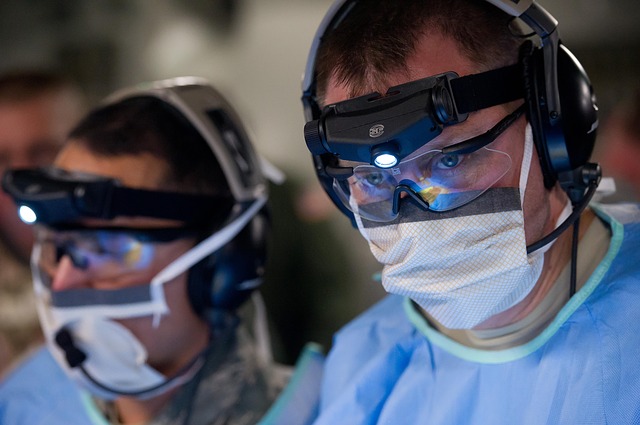
Obesity and Bariatric Surgery
Obesity has been on the rise in the USA and throughout the world. Officially recognized as an epidemic, obesity is also linked to the early onset and increased number of cases of heart disease, strokes, type 2 diabetes and certain types of cancer.
As a result of the epidemic, both obesity and bariatric surgery are on the rise. From 2015 to 2016, about 93.3 million of U.S. adults were affected by obesity, with a prevalence rate of almost 40 percent. As a result, the use of surgical weight-loss procedures has increased dramatically.
What is bariatric surgery?
Bariatric surgical procedures aim for weight loss by limiting the amount of food the stomach can hold, causing malabsorption of nutrients, or through a combination of both gastric restriction and malabsorption. Our Group has done basic research suggesting that some of the most critical effects of bariatric surgery are due to changes in the gut-brain connections.
The most common bariatric surgery procedures are the Roux-en-Y gastric bypass, vertical sleeve gastrectomy, and adjustable gastric band. For obesity and bariatric surgery, each type of surgery has its own advantages and disadvantages.
In 2017, reportedly 228,000 bariatric surgeries were conducted in the United States. Almost 60 percent of these surgeries were vertical sleeve gastrectomy, 17.8 percent were RYGB, and 2.77 percent constituted gastric bands.
However, some patients regain the weight post-bariatric surgery, resulting in a reemergence of diabetes or other comorbidities that had been initially resolved. “Successful” weight loss is roughly defined as weight loss equal to or greater than 50 percent of excess body weight. Several multifaceted factors influence the course of weight loss post-surgery and can be categorized into preoperative and postoperative predictors.
Preoperative predictors mainly include a higher baseline body mass index and personality disorders, alongside older age, gender, race, and presence of type 2 diabetes. Postoperative factors include nutritional noncompliance, hormonal/metabolic imbalance, physical
inactivity, and psychiatric comorbidities.
Role of personality traits
 University of Florida’s Obesity & Bariatric Surgery Centers evaluates patients for existing psychiatric and addictive diseases including the patient’s previous attempts at weight management, weight and diet history, patterns of weight loss and gain, hormonal imbalances, and behavioral and emotional variables.
University of Florida’s Obesity & Bariatric Surgery Centers evaluates patients for existing psychiatric and addictive diseases including the patient’s previous attempts at weight management, weight and diet history, patterns of weight loss and gain, hormonal imbalances, and behavioral and emotional variables.
It is essential to look for maladaptive eating behaviors like excessive dieting and especially, binge eating. This also helps prepare clinicians for counseling and therapy after surgery.
Approximately, 30 percent of individuals awaiting treatment binge eat. The role that food has played across the patient’s life and the impulsivity driving their food consumption is essential to be understood. Persistent and habitual patterns of unregulated eating in patients requires psycho-education or psychotherapy to build their capacity for mindful eating.
Even though pre-bariatric evaluations do not guarantee weight loss post-op, encouraging patients to adopt a low-calorie diet and charting their progress prior to surgery is a strong indicator of future success. Recent research has highlighted the role of pre-operative personality traits on postoperative weight loss among patients undergoing surgery for severe obesity.
Personality patterns distinguished by the ability to self-regulate desires in the face of challenges was denoted as a strong predictor of good outcomes across the studies. Current commitment to exercise also indicates motivation levels and preference of healthy lifestyle among patients.
While the assessment of substance use is standard practice for all evaluations by healthcare practitioners, it is vital to assess potential links between the person’s use of nicotine, alcohol, caffeine, opioids, medications, supplements and other illicit substances. Alcohol is more rapidly absorbed after surgery. Carbonated beverages may affect pouch functionality. Nicotine may hinder healing and/or cause ulcers.
Co-existing psychiatric and psychological complications
Obese patients, like those without obesity, may deal with psychological disorders such as depression, PTSD, anxiety and substance use disorders. Studies show that depression and impulsive eating are common in morbidly obese patients.
Such coexisting conditions are important to diagnose as impulsivity has a strong negative correlation with post-op weight loss in both gastric sleeve and bypass patients. Self-defeating behaviors such as habitual eating, anger-driven eating, lonely eating or compulsive eating are detrimental to the success of such surgeries, as results depend primarily on the patients’ self-discipline and commitment.

Bariatric surgery candidates with impulse control problems have to battle both post-surgery non-adherence and risky behaviors compromising the operations safety. Some patients may ignore initial post-surgery dietary restrictions and turn to eating solids too soon. Such risky behaviors may further jeopardize recovery as dependence on food may be replaced by other addictive behaviors such as gambling, compulsive exercise, hypersexuality, shopping, and alcohol or drug abuse.
Importance of food cues
In today’s obesogenic environment, advertisements present food as highly desirable, designed to have the strongest impact on the physiology of its audience. Obese individuals have distorted food cue-elicited responses in the brain, leading to continued food intake, unsuccessful weight management, and poor treatment outcomes.
Optimal treatment should include coaching and other psychosocial interventions to help with mood and relationships while also managing food cue reactivity, relapse, cravings, and desire.
What can be done?
At any rate, the patients’ reasons for non-compliance and non-adherence are multi-faceted and often deep-rooted. Health care providers need to prioritize lifestyle interventions and additional behavioral and psychological therapies, designed to modify eating behaviors and highlight physical fitness.
Extensive research has shown that patients receiving high-intensity behavioral counseling, constituting 14 or more visits in 6 months, performed best. A comprehensive program led by a trained interventionist resulted in a mean weight loss of 5 to 8 percent, and approximately 60 to 65 percent of patients lost 5 percent or more of their initial weight.
Behavioral therapy provides patients with techniques for adopting dietary and activity recommendations. Regular recording of food intake, physical activity, and weight is vital, made easier with smartphone applications, activity counters and cellular- connected scales.
Progress is noted weekly with a trained interventionist who provides encouragement, guidelines to accomplish goals and problem-solving instructions. Alternatively, web-based interventions provide a greater reach and convenience, alongside lower costs. Research, however, shows that one-half to two-thirds of more weight loss is accomplished with in-person counseling compared to the web-based interventions.
 Furthermore, obesity is a widespread genetic health condition, suggesting possible associations between the brain and obesity. Research has found heritable variance in body mass index to be genetically correlated with cortical thickness and regional brain volume. Future research can help outline more specific neurobehavioral mechanisms to help design more informed interventions.
Furthermore, obesity is a widespread genetic health condition, suggesting possible associations between the brain and obesity. Research has found heritable variance in body mass index to be genetically correlated with cortical thickness and regional brain volume. Future research can help outline more specific neurobehavioral mechanisms to help design more informed interventions.
Heymsfield and Wadden have identified energy-balance dysregulation, and other environmental, emotional and genetic factors as foremost causes of obesity. They recommend therapeutic lifestyle changes, complementary pharmacotherapy, and bariatric surgery as the main treatment strategies for this condition.
Pharmacotherapy is indicated as a useful adjunct to a reduced-calorie diet and increased activity for long-term weight management. Medications may be considered in adults who have a BMI of 30 or higher or a BMI of 27 to 29 with at least one weight-related coexisting condition.
Ultimately, each patient aims to improve health and quality of life by achieving and maintaining moderate weight loss. This includes treating the patient as a whole, encompassing their psychological needs as well. Treatments should be aligned with the severity of overweight, associated co-existing chronic diseases, and functional limitations.
References:
1. https://www.cdc.gov/obesity/data/adult.html
2. https://asmbs.org/resources/estimate-of-bariatric-surgery-numbers
3. Generali I, De Panfilis C .Personality Traits and Weight Loss Surgery Outcome. Curr Obes Rep.2018 Jul 26. doi: 10.1007/s13679-018-0315-x.
4. Heymsfield SB1, Wadden TA1. Mechanisms, Pathophysiology, and Management of Obesity.N Engl J Med. 2017 Jan 19;376(3):254-266. doi: 10.1056/NEJMra1514009.
5. Belfort-DeAguiar R, Seo D. Food Cues and Obesity: Overpowering Hormones and Energy BalanceRegulation. Curr Obes Rep. 2018 Jun;7(2):122-129. doi: 10.1007/s13679-018-0303-1.
6. https://www.tandfonline.com/doi/abs/10.1080/17446651.2018.1447922?journalCode=iere20
About the Author:
 Mark S. Gold, M.D. served as Professor, the Donald Dizney Eminent Scholar, Distinguished Professor and Chair of Psychiatry from 1990-2014. Dr Gold was the first Faculty from the College of Medicine to be selected as a University-wide Distinguished Alumni Professor and served as the 17th University of Florida’s Distinguished Alumni Professor.
Mark S. Gold, M.D. served as Professor, the Donald Dizney Eminent Scholar, Distinguished Professor and Chair of Psychiatry from 1990-2014. Dr Gold was the first Faculty from the College of Medicine to be selected as a University-wide Distinguished Alumni Professor and served as the 17th University of Florida’s Distinguished Alumni Professor.
Learn more about Mark S. Gold, MD
About the Transcript Editor:
 A journalist and social media savvy content writer with extensive research, print and on-air interview skills, Sana Ahmed has previously worked as staff writer for a renowned rehabilitation institute, a content writer for a marketing agency, an editor for a business magazine and been an on-air news broadcaster.
A journalist and social media savvy content writer with extensive research, print and on-air interview skills, Sana Ahmed has previously worked as staff writer for a renowned rehabilitation institute, a content writer for a marketing agency, an editor for a business magazine and been an on-air news broadcaster.
Sana graduated with a Bachelors in Economics and Management from London School of Economics and began a career of research and writing right after. Her recent work has largely been focused upon mental health and addiction recovery.
The opinions and views of our guest contributors are shared to provide a broad perspective of weight management. These are not necessarily the views of Weight Hope, but an effort to offer a discussion of various issues by different concerned individuals.
We at Weight Hope understand that weight issues result from multiple physical, emotional, environmental and genetic factors. If you or a loved one are suffering from a weight concern, please know that there is hope for you.
Published on February 12, 2019
Reviewed by Jacquelyn Ekern, MS, LPC on February 12, 2019
Published on WeightHope.com
